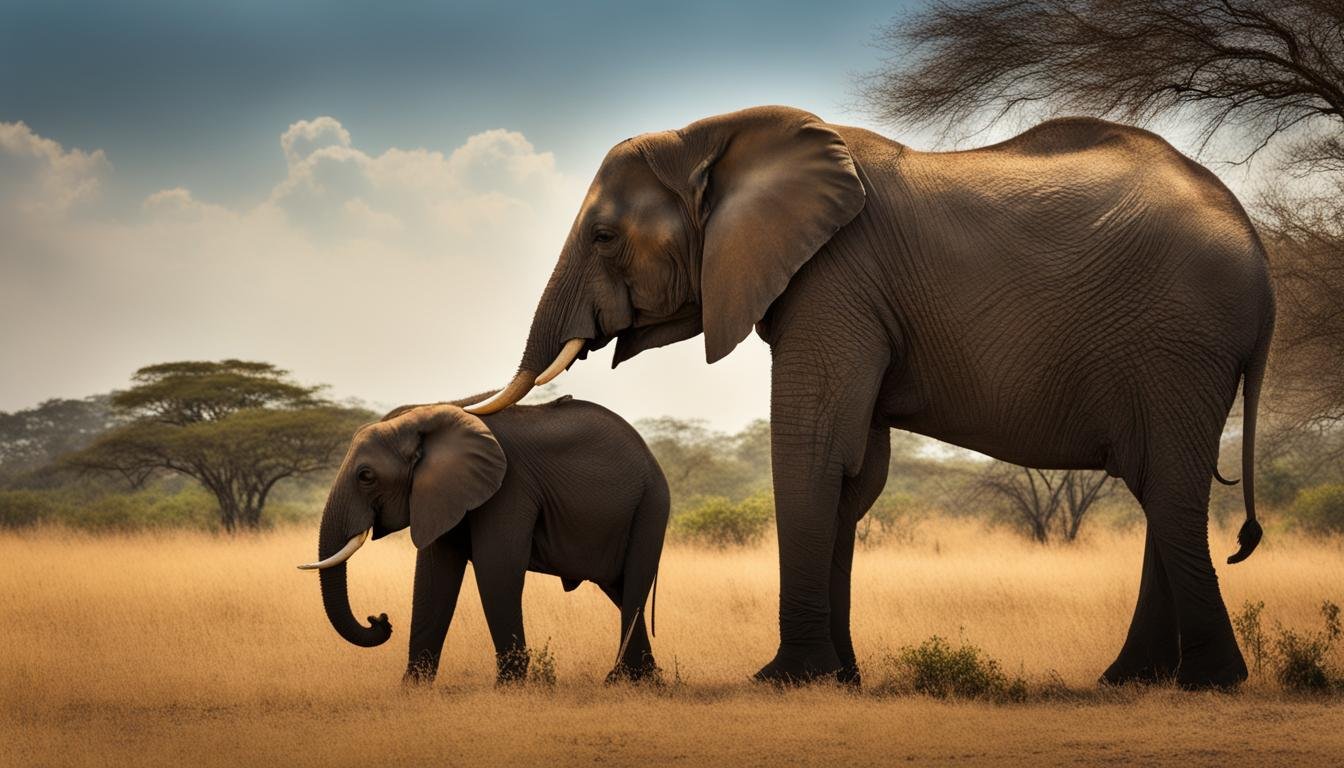15 Facts About Elephants That Will Shock You
1. Intelligent Giants
Elephants are highly intelligent and emotionally complex animals. They possess the largest brains among land mammals, showcasing advanced cognitive abilities, problem-solving skills, and an exceptional memory. Their intelligence is comparable to that of great apes and dolphins.
2. Social Structure
Elephants are known for their intricate social structures. They live in tight-knit family units, led by a matriarch, often consisting of related females and their offspring. These family groups form larger herds that can include several generations of elephants.
3. Matriarchal Leadership
In elephant herds, the matriarch plays a crucial role in decision-making and guiding the group. With her extensive knowledge of the environment and social dynamics, the matriarch leads the herd to water sources, and feeding grounds and protects it from potential threats.
4. Remarkable Memory
Elephants are celebrated for their remarkable memory. They can remember specific locations of water holes, feeding areas, and even individuals within their social circles. This ability to recall information is essential for their survival and contributes to their adaptability in ever-changing landscapes.
5. Emotional Intelligence
Elephants exhibit a high level of emotional intelligence, displaying a wide range of emotions such as joy, grief, and empathy. They mourn their deceased kin, forming what appear to be rituals around the bodies, and show compassion toward injured or distressed herd members.
6. Communication Through Sounds
Elephants communicate using a variety of vocalizations, infrasound (low-frequency sounds below the range of human hearing), and body language. Trumpeting, rumbling, and roars are some of the vocalizations used to convey different messages, including warning signals, mating calls, and expressions of excitement.
7. Tool Use
While not as extensively studied as some other intelligent species, elephants have demonstrated tool use in the wild. They use sticks to scratch themselves, branches to swat flies, and even employ makeshift tools to dig for water or food.
8. Long Gestation Period
Elephants have one of the longest gestation periods among mammals, lasting about 22 months. This extended pregnancy contributes to the development of well-developed and highly intelligent offspring, capable of navigating their complex social environment.
9. Herbivorous Diet
Elephants are herbivores, primarily feeding on a variety of plant matter such as grasses, leaves, bark, and fruits. Their massive size and efficient digestive systems allow them to consume large quantities of vegetation, contributing to their crucial role as ecosystem engineers.
10. Territorial Movements
Elephants are known for their extensive territorial movements. They cover large distances in search of food and water, shaping landscapes as they create trails and clearings. These movements are essential for maintaining the health of ecosystems and promoting biodiversity.
11. Conservation Challenges
Elephants face significant conservation challenges, including habitat loss, human-wildlife conflict, and poaching for ivory. Conservation efforts focus on protecting their habitats, mitigating conflicts, and addressing the illegal ivory trade to ensure the survival of these iconic animals.
12. Adaptations to Diverse Environments
Elephants are highly adaptable and can thrive in a variety of environments, from savannas and forests to deserts. Their ability to modify landscapes and create water sources through digging contributes to the overall health of ecosystems.
13. Complex Trunk
The elephant’s trunk is a versatile and complex organ, serving multiple functions. It is used for breathing, smelling, touching, grasping objects, and even producing sounds. The trunk’s dexterity allows elephants to engage in intricate behaviors, such as delicately picking leaves or forcefully uprooting trees.
14. Cultural Significance
Elephants hold cultural significance in many societies and religions. They are revered for their wisdom, strength, and gentle nature. In various mythologies and traditions, elephants symbolize good fortune, longevity, and spiritual wisdom.
15. Tourism and Responsible Practices
Tourism centered around elephant encounters has grown, raising ethical concerns about the treatment and well-being of captive elephants. Responsible tourism initiatives aim to promote ethical practices, emphasizing conservation, education, and the welfare of elephants in their natural environments.
Elephant Quiz
How well do you know elephants? Test your knowledge here!








